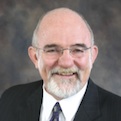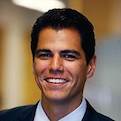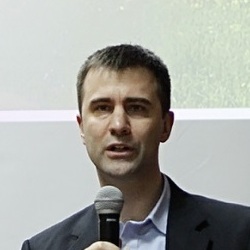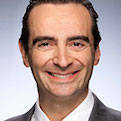Transforming the Role of Business in Education
An intensive one-day conference hosted by FSG, the Shared Value Initiative, and Stanford Social Innovation Review
October 29, 2014
8:00 a.m. – 5:00 p.m.
Paul Brest Hall
Munger Building 4
555 Salvatierra Walk
Stanford, CA
Click here to learn more about the Shared Value Initiative
Event Hosts:

Sponsor:

Quick Links
Program Overview | Conference Sessions | Schedule | Confirmed Speakers | What Your Conference Fee Includes | Facilities and Location | Lodging | Rates and Registration | Privacy Policy | Contact Information | Co-Sponsors and Partner
Program Overview
Transforming the Role of Business in Education
Companies across industries—including technology, financial services, agriculture, and more—are beginning to play a new role in education. These companies are tackling education issues through their core business strategy and operations. In doing so, they are finding new ways to become essential partners for schools, nonprofits, and governments in helping to raise levels of student and workforce achievement.
This one-day conference, hosted by the Shared Value Initiative, FSG, and Stanford Social Innovation Review, will bring together business, education, and nonprofit leaders eager to explore new models to help address the world's educational needs. Through this conference, attendees will:
- Explore trends driving companies to engage in education in a new way.
- Discover how business, nonprofits, schools, and governments can create partnerships that improve education at scale.
- Gain practical recommendations for how corporate, government, and civil society leaders can work together to create greater value for society.
To learn more about how companies can create shared value in education, click here.
Conference Sessions
Morning General Sessions
Keynote Address: Introducing the New Role of Business in Education
Sir Michael Barber, Chief Education Advisor, Pearson
The opening keynote will explain why we’ve come together to discuss the new role of business in education. The keynoter will review how traditional corporate engagement in education has left value on the table for both business and society and illuminate the trends that are driving business to engage in education in a new way. He will then discuss how Pearson is making this shift and argue why this transformation is critical to meeting our global education needs.
Panel: Can Companies, Government, and Educators Create Shared Value in Education?
Dr. James Applegate, Executive Director, Illinois Board of Higher Education; Karen Cator, CEO, Digital Promise; Dean Florez, President and CEO, The 20 Million Minds Foundation
Moderator: Eric Nee, Managing Editor, Stanford Social Innovation Review
This panel will explore how business, government, and education leaders can work together to improve the effectiveness of education systems at scale. Speakers will discuss two distinct approaches to shared value creation— building the workforce of the future and innovating for student success—and why these models are particularly worthy of our attention. Speakers will weigh the benefits and trade-offs of these approaches, and offer recommendations for how to effectively leverage the power of business to help improve educational outcomes.
Afternoon Breakout Sessions (Running Concurrently)
Breakout Session I: Innovating for Student Success
Diane Tavenner, CEO, Summit Public Schools; James Bernard, Senior Director, Global Strategic Partnerships, Microsoft Education
This session will focus on the shift that education and technology companies around the world are making to deliver products and services that have a measurable, proven impact on learners’ lives. Speakers will discuss the benefits and challenges of adopting this approach, and explore what it will take for more companies to integrate student success into their business strategy moving forward. Audience members will then engage in small roundtable discussions to further unfold these questions, and the session will conclude with speaker Q&A.
Breakout Session II: Building the Workforce of the Future
Suzanne Fallender, Director, Global Girls and Women Initiative, Intel Corporation; Eric Johnson, Workforce Development Lead, Office of Education, USAID
This session will focus on how companies can evolve from passive consumers of talent to catalysts for developing a skilled workforce—and, in doing so, increase employability and economic mobility in their communities. Speakers will discuss the key ingredients needed to undertake this shift, from taking a broader view of workforce needs, to building cross-sector collaboratives, to aligning curricula with the skills needed for employment. Audience members will then engage in small roundtable discussions to further unfold these questions, and the session will conclude with speaker Q&A.
Afternoon General Session
Plenary: A Call to Action
Bill Goodwyn, CEO, Discovery Education; Dr. Juan "Kiko" Suarez, Vice President of Communications and Innovation, Lumina Foundation; Jamie McAuliffe, CEO, Education for Employment
Moderator: Mark Kramer, Cofounder and Managing Director, FSG, and Senior Advisor, Shared Value Initiative
The afternoon plenary will offer a vision for how companies and their partners can open up entrepreneurial and innovative solutions to addressing educational issues and realize opportunities to impact education through new thinking, new business models, and cross-sector collaboration. The speakers will share their stories of creating quality education for all and answer questions from the moderator and audience.
Closing Keynote
David L. Kirp, James D. Marver Professor of Public Policy, Goldman School of Public Policy, University of California Berkeley
Networking Reception and Cocktails
We will end the day with an open reception for networking and knowledge sharing.
Schedule
Wednesday, October 29, at Paul Brest Hall:
|
Time |
Session |
Speakers |
|
8:00 – 9:00 a.m. |
Check In and Continental Breakfast |
|
|
9:00 – 9:15 a.m. |
Welcome and Conference Overview |
Eric Nee and Kate Tallant |
|
9:15 – 10:00 a.m. |
Keynote: Introducing the New Role of Business in Education |
Sir Michael Barber |
|
10:00 – 11:30 a.m. |
Panel: Can Companies, Government, and Educators Create Shared Value in Education? |
Dr. James Applegate, Karen Cator, Dean Florez Moderator : Eric Nee |
|
11:30 a.m. – 12:30 p.m. |
Lunch and Networking (vegetarian and non-vegetarian lunch boxes available) |
|
|
12:30 – 2:00 p.m. |
Breakout Sessions |
|
|
Innovating for Student Success |
James Bernard, Diane Tavenner Moderator: Matt Wilka |
|
|
Building the Workforce of the Future |
Suzanne Fallender, Eric Johnson Moderator: Rick Cruz |
|
|
2:00 – 2:15 p.m. |
Coffee Break |
|
|
2:15 – 3:30 p.m. |
Plenary: A Call to Action |
Bill Goodwyn, Dr. Juan "Kiko" Suarez, Jamie McAuliffe Moderator : Mark Kramer |
|
3:30 – 4:00 p.m. |
Closing Keynote |
Professor David L. Kirp |
|
4:00 – 5:00 p.m. |
Networking Reception |
|
Confirmed Speakers
Dr. James L. Applegate, Executive Director, Illinois Board of Higher Education
 Dr. James L. Applegate serves as the Executive Director for the Illinois Board of Higher Education. As the state higher education executive officer, he leads efforts to dramatically expand college opportunity especially for underserved students. He works to increase higher education's contributions to Illinois' economic and civic health as part of advancing Illinois’ Public Agenda. Applegate previously served as Vice President for the Lumina Foundation, the largest US foundation solely focused on improving higher education. As head of grant making, he led development of new approaches to invest Lumina’s more than $50 million annual grant budget to drive increased degree production, fairness, and productivity in the higher education system. From 2000 to 2008, Applegate was the Chief Academic Officer for the state of Kentucky. There he supported reforms that resulted in Kentucky leading the nation in higher education attainment increases from 2000 to 2009. Applegate was a professor, department head, and university senate chair at the University of Kentucky. He was a University Fellow and received his Ph.D. from the University of Illinois.
Dr. James L. Applegate serves as the Executive Director for the Illinois Board of Higher Education. As the state higher education executive officer, he leads efforts to dramatically expand college opportunity especially for underserved students. He works to increase higher education's contributions to Illinois' economic and civic health as part of advancing Illinois’ Public Agenda. Applegate previously served as Vice President for the Lumina Foundation, the largest US foundation solely focused on improving higher education. As head of grant making, he led development of new approaches to invest Lumina’s more than $50 million annual grant budget to drive increased degree production, fairness, and productivity in the higher education system. From 2000 to 2008, Applegate was the Chief Academic Officer for the state of Kentucky. There he supported reforms that resulted in Kentucky leading the nation in higher education attainment increases from 2000 to 2009. Applegate was a professor, department head, and university senate chair at the University of Kentucky. He was a University Fellow and received his Ph.D. from the University of Illinois.
Sir Michael Barber, Chief Education Advisor, Pearson
 Sir Michael Barber joined Pearson in September 2011 as Chief Education Advisor, leading Pearson’s worldwide program of efficacy and research, ensuring the impact of the program on the learner outcomes of Pearson and its customers. He plays a particular role in Pearson’s strategy for education in the developing world and is Chairman of the Pearson Affordable Learning Fund. Prior to Pearson, he was a Partner at McKinsey & Company and head of McKinsey’s global education practice. He coauthored two major McKinsey education reports: How the world’s best-performing schools come out on top (2007) and How the world’s most improved school systems keep getting better (2010). He holds honorary doctorates from the University of Exeter and the University of Wales. He previously served in the UK government as head of the Prime Minister’s Delivery Unit (from 2001-2005) and as Chief Adviser to the Secretary of State for Education on School Standards (from 1997-2001). Before joining government he was a professor at the Institute of Education at the University of London. He is the author of several books including Instruction to Deliver; Deliverology 101; The Learning Game: Arguments for an Education Revolution, and The Making of the 1944 Education Act.
Sir Michael Barber joined Pearson in September 2011 as Chief Education Advisor, leading Pearson’s worldwide program of efficacy and research, ensuring the impact of the program on the learner outcomes of Pearson and its customers. He plays a particular role in Pearson’s strategy for education in the developing world and is Chairman of the Pearson Affordable Learning Fund. Prior to Pearson, he was a Partner at McKinsey & Company and head of McKinsey’s global education practice. He coauthored two major McKinsey education reports: How the world’s best-performing schools come out on top (2007) and How the world’s most improved school systems keep getting better (2010). He holds honorary doctorates from the University of Exeter and the University of Wales. He previously served in the UK government as head of the Prime Minister’s Delivery Unit (from 2001-2005) and as Chief Adviser to the Secretary of State for Education on School Standards (from 1997-2001). Before joining government he was a professor at the Institute of Education at the University of London. He is the author of several books including Instruction to Deliver; Deliverology 101; The Learning Game: Arguments for an Education Revolution, and The Making of the 1944 Education Act.
James Bernard, Senior Director, Global Strategic Partnerships, Microsoft Education
 James Bernard is the Senior Director of Global Strategic Partnerships on Microsoft’s education team. He leads a team that builds global multi-lateral partnerships between public, private, and social sector organizations to ensure that technology is appropriately used in holistic education reform programs around the world. Between 2006 and 2008 Bernard served as Vice President of Marketing and Communications for World Learning, an international NGO focused on educational exchange and international development. Bernard held a number of globally focused consumer marketing and communications positions at Microsoft between 1999 and 2006, working on consumer technology products and projects designed to bring technology to people in developing countries, specifically through the distribution of low-cost PCs. Prior to that, Bernard spent eight years working in consumer marketing and PR in Chicago. Bernard is a frequent speaker on issues related to public-private partnerships in education, and serves on the board of directors of Pact, a global NGO focused on building local capacity. He lives in Seattle with his wife and daughter.
James Bernard is the Senior Director of Global Strategic Partnerships on Microsoft’s education team. He leads a team that builds global multi-lateral partnerships between public, private, and social sector organizations to ensure that technology is appropriately used in holistic education reform programs around the world. Between 2006 and 2008 Bernard served as Vice President of Marketing and Communications for World Learning, an international NGO focused on educational exchange and international development. Bernard held a number of globally focused consumer marketing and communications positions at Microsoft between 1999 and 2006, working on consumer technology products and projects designed to bring technology to people in developing countries, specifically through the distribution of low-cost PCs. Prior to that, Bernard spent eight years working in consumer marketing and PR in Chicago. Bernard is a frequent speaker on issues related to public-private partnerships in education, and serves on the board of directors of Pact, a global NGO focused on building local capacity. He lives in Seattle with his wife and daughter.
Karen Cator, CEO, Digital Promise
 Karen Cator is President and CEO of Digital Promise. From 2009 to 2013, Karen was Director of the Office of Educational Technology at the US Department of Education, where she led the development of the 2010 National Education Technology Plan and focused the Office’s efforts on teacher and leader support. She also was a leading voice for transforming American education through technology innovation and research. Prior to joining the department, Cator directed Apple’s leadership and advocacy efforts in education. In this role, she focused on the intersection of education policy and research, emerging technologies, and the reality faced by teachers, students and administrators. She began her education career in Alaska as a teacher, ultimately leading technology planning and implementation. She also served as Special Assistant for Telecommunications for the Governor of Alaska. Cator holds a master’s degree in school administration from the University of Oregon and a bachelor’s degree in early childhood education from Springfield College. She is a past chair for the Partnership for 21st Century Skills and has served on boards including the Software & Information Industry Association-Education.
Karen Cator is President and CEO of Digital Promise. From 2009 to 2013, Karen was Director of the Office of Educational Technology at the US Department of Education, where she led the development of the 2010 National Education Technology Plan and focused the Office’s efforts on teacher and leader support. She also was a leading voice for transforming American education through technology innovation and research. Prior to joining the department, Cator directed Apple’s leadership and advocacy efforts in education. In this role, she focused on the intersection of education policy and research, emerging technologies, and the reality faced by teachers, students and administrators. She began her education career in Alaska as a teacher, ultimately leading technology planning and implementation. She also served as Special Assistant for Telecommunications for the Governor of Alaska. Cator holds a master’s degree in school administration from the University of Oregon and a bachelor’s degree in early childhood education from Springfield College. She is a past chair for the Partnership for 21st Century Skills and has served on boards including the Software & Information Industry Association-Education.
Rick Cruz, Director, FSG
 Rick co-leads FSG’s Education & Youth Practice, serving a diverse portfolio of clients and advancing the firm’s thought leadership in the field. Prior to joining the firm, he held several leadership positions in the education sector. From 2012 to 2013, he served as the Chief Executive Officer of DC Prep Public Charter Schools, a high-performing charter management organization serving the most under-resourced communities in Washington, DC. From 2010 to 2012, Rick was the Chief Field Officer for the Network for Teaching Entrepreneurship, a nonprofit organization dedicated to improving student engagement and real world skill acquisition through the development and implementation of innovative entrepreneurship education curricula, teacher training, experiential programing, and volunteer engagement. From 2007 to 2010, Rick was Vice President of Regional Operations at Teach for America. Before joining the education sector, Rick was a seasoned strategy consultant and business manager, having worked at the Corporate Executive Board and the Advisory Board Company for more than a decade in successive leadership positions in the US and internationally. Rick earned a bachelor's degree in philosophy from Yale University.
Rick co-leads FSG’s Education & Youth Practice, serving a diverse portfolio of clients and advancing the firm’s thought leadership in the field. Prior to joining the firm, he held several leadership positions in the education sector. From 2012 to 2013, he served as the Chief Executive Officer of DC Prep Public Charter Schools, a high-performing charter management organization serving the most under-resourced communities in Washington, DC. From 2010 to 2012, Rick was the Chief Field Officer for the Network for Teaching Entrepreneurship, a nonprofit organization dedicated to improving student engagement and real world skill acquisition through the development and implementation of innovative entrepreneurship education curricula, teacher training, experiential programing, and volunteer engagement. From 2007 to 2010, Rick was Vice President of Regional Operations at Teach for America. Before joining the education sector, Rick was a seasoned strategy consultant and business manager, having worked at the Corporate Executive Board and the Advisory Board Company for more than a decade in successive leadership positions in the US and internationally. Rick earned a bachelor's degree in philosophy from Yale University.
Suzanne Fallender, Director, Global Girls and Women Initiative, Intel Corporation
 Suzanne Fallender has more than 16 years of experience in the fields of corporate responsibility and corporate governance. She is currently Director of Intel's Global Girls and Women Initiative, which includes a set of strategic programs, partnerships, and policy engagements designed to empower millions of girls and women around the world through education and technology. This includes Intel's partnership on the Girl Rising campaign which advocates for investing in girls' education, programs to inspire more girls and women to pursue technology and engineering careers, and the Intel She Will Connect program, which aims to close the internet gender gap in developing countries. Fallender also leads Intel's strategy around the concept of creating shared value, including engaging in research and partnerships that create both business value and social impact. Prior to her current role, Fallender led Intel's approach to CSR reporting and engagement with socially responsible investors, including publication of Intel's annual CSR report. She also worked with business groups across the company to integrate CSR into strategic planning, goal-setting, external and internal communications, and employee engagement activities. Previously, Fallender served as Vice President at Institutional Shareholder Services where she managed the firm's socially responsible investing division. Outside Intel, she is a member of the Boston College Center for Corporate Citizenship's Executive Forum and Net Impact's Corporate Advisory Council and serves on the boards of directors of the Tempe Community Council and Arizona Businesses Advancing Sustainability.
Suzanne Fallender has more than 16 years of experience in the fields of corporate responsibility and corporate governance. She is currently Director of Intel's Global Girls and Women Initiative, which includes a set of strategic programs, partnerships, and policy engagements designed to empower millions of girls and women around the world through education and technology. This includes Intel's partnership on the Girl Rising campaign which advocates for investing in girls' education, programs to inspire more girls and women to pursue technology and engineering careers, and the Intel She Will Connect program, which aims to close the internet gender gap in developing countries. Fallender also leads Intel's strategy around the concept of creating shared value, including engaging in research and partnerships that create both business value and social impact. Prior to her current role, Fallender led Intel's approach to CSR reporting and engagement with socially responsible investors, including publication of Intel's annual CSR report. She also worked with business groups across the company to integrate CSR into strategic planning, goal-setting, external and internal communications, and employee engagement activities. Previously, Fallender served as Vice President at Institutional Shareholder Services where she managed the firm's socially responsible investing division. Outside Intel, she is a member of the Boston College Center for Corporate Citizenship's Executive Forum and Net Impact's Corporate Advisory Council and serves on the boards of directors of the Tempe Community Council and Arizona Businesses Advancing Sustainability.
Dean Florez, President and CEO, The Twenty Million Minds Foundation
 Dean Florez is the president of The Michelson Twenty Million Minds Foundation (20MM) and a previous California Senate Majority Leader with over 20 years of legislative policy experience. He was recently appointed to the California Committee on Awards for Innovation in Higher Education which will oversee a $50 million fund intended to reward forward thinking state universities and colleges that seek to increase graduation rates. Florez is a thought leader on higher education issues and is often a featured speaker on panels at conferences like “The New York Times School for Tomorrow” and the “White House Education Data-pa-looza to Promote Innovation in Improving College Access, Affordability and Completion.” His emphasis during his tenure in the legislature was overseeing high technology implementation and educational reform, where he chaired the Senate Select Committee on Wireless Technology and Consumer Driven Programming and the Senate Governmental Organization Committee. Florez previously worked in higher education policy as the Senate’s Chief consultant to the Senate Committee on University of California Admissions and staffed the California Joint Master Plan of Higher Education Review. Florez is a past investment banker, having received his MBA from Harvard University in 1993 and his bachelor's degree in political science from UCLA.
Dean Florez is the president of The Michelson Twenty Million Minds Foundation (20MM) and a previous California Senate Majority Leader with over 20 years of legislative policy experience. He was recently appointed to the California Committee on Awards for Innovation in Higher Education which will oversee a $50 million fund intended to reward forward thinking state universities and colleges that seek to increase graduation rates. Florez is a thought leader on higher education issues and is often a featured speaker on panels at conferences like “The New York Times School for Tomorrow” and the “White House Education Data-pa-looza to Promote Innovation in Improving College Access, Affordability and Completion.” His emphasis during his tenure in the legislature was overseeing high technology implementation and educational reform, where he chaired the Senate Select Committee on Wireless Technology and Consumer Driven Programming and the Senate Governmental Organization Committee. Florez previously worked in higher education policy as the Senate’s Chief consultant to the Senate Committee on University of California Admissions and staffed the California Joint Master Plan of Higher Education Review. Florez is a past investment banker, having received his MBA from Harvard University in 1993 and his bachelor's degree in political science from UCLA.
Bill Goodwyn, CEO, Discovery Education
 A 26-year veteran of Discovery Communications, Bill Goodwyn serves as President and CEO of Discovery Education, the leading provider of digital textbooks and curriculum-based digital content in U.S. schools. As a global leader in educational transformation, Discovery Education reaches over half of all K-12 classrooms, serving 3.5 million educators, 35 million students in the US, as well as 50 countries around the world. Discovery Education transforms teaching and learning by partnering with districts nationwide to drive student achievement. Under Goodwyn's leadership, Discovery Education has been a pioneer in the digital textbook space, now offering a full range of Techbooks, including K-12 Science, Middle School Social Studies, and for the 2014-2015 school year will expand to include a series of Math Techbooks. Designed to replace traditional textbooks as a primary resource for instruction, Discovery Education's Techbook is one of the first digital textbooks adopted in multiple US states. Goodwyn also served as the company's President of Global Distribution, overseeing all content distribution strategy, sales and marketing activity on behalf of Discovery's US content portfolio encompassing more than 13 networks and their high-definition and video on demand extensions including Discovery Channel, TLC, Animal Planet, Investigation Discovery, and Science Channel. A sought-after speaker on issues related to education, workforce readiness, digital learning, and shared value, Goodwyn has keynoted conferences and served on plenary panels hosted by the Clinton Global Initiative, the Democratic & Republican Governors' Associations, Common Sense Media, and the Chamber of Commerce, among others.
A 26-year veteran of Discovery Communications, Bill Goodwyn serves as President and CEO of Discovery Education, the leading provider of digital textbooks and curriculum-based digital content in U.S. schools. As a global leader in educational transformation, Discovery Education reaches over half of all K-12 classrooms, serving 3.5 million educators, 35 million students in the US, as well as 50 countries around the world. Discovery Education transforms teaching and learning by partnering with districts nationwide to drive student achievement. Under Goodwyn's leadership, Discovery Education has been a pioneer in the digital textbook space, now offering a full range of Techbooks, including K-12 Science, Middle School Social Studies, and for the 2014-2015 school year will expand to include a series of Math Techbooks. Designed to replace traditional textbooks as a primary resource for instruction, Discovery Education's Techbook is one of the first digital textbooks adopted in multiple US states. Goodwyn also served as the company's President of Global Distribution, overseeing all content distribution strategy, sales and marketing activity on behalf of Discovery's US content portfolio encompassing more than 13 networks and their high-definition and video on demand extensions including Discovery Channel, TLC, Animal Planet, Investigation Discovery, and Science Channel. A sought-after speaker on issues related to education, workforce readiness, digital learning, and shared value, Goodwyn has keynoted conferences and served on plenary panels hosted by the Clinton Global Initiative, the Democratic & Republican Governors' Associations, Common Sense Media, and the Chamber of Commerce, among others.
Eric Johnson, Workforce Development Lead, Office of Education, USAID
 Eric Johnson is a Foreign Service Officer with USAID stationed in Washington, after assignments in Ghana and Vietnam. He currently leads a team dedicated to advancing and applying evidence to guide USAID's global investments in Higher Education and Workforce Development. Previously, as USAID’s Education Lead in Vietnam, he developed three public private partnerships in higher education, leveraging USAID investments at 50:1 and contributing to critical joint U.S-Vietnam goals in higher education reform. In Ghana, he led the development and implementation of basic education projects in early-grade reading, student assessment, and school accountability. Prior to USAID, he spent a year in Kyrgyzstan on a Fulbright fellowship conducting field research for his PhD at Columbia University. His focus on Central Asia grew out of his time in Kazakhstan as a Peace Corps Volunteer. As of October 20, 2014, he will transition to a new job at RTI International, where he will help stand up and direct a new Global Center for Youth Employment.
Eric Johnson is a Foreign Service Officer with USAID stationed in Washington, after assignments in Ghana and Vietnam. He currently leads a team dedicated to advancing and applying evidence to guide USAID's global investments in Higher Education and Workforce Development. Previously, as USAID’s Education Lead in Vietnam, he developed three public private partnerships in higher education, leveraging USAID investments at 50:1 and contributing to critical joint U.S-Vietnam goals in higher education reform. In Ghana, he led the development and implementation of basic education projects in early-grade reading, student assessment, and school accountability. Prior to USAID, he spent a year in Kyrgyzstan on a Fulbright fellowship conducting field research for his PhD at Columbia University. His focus on Central Asia grew out of his time in Kazakhstan as a Peace Corps Volunteer. As of October 20, 2014, he will transition to a new job at RTI International, where he will help stand up and direct a new Global Center for Youth Employment.
David L. Kirp, James D. Marver Professor of Public Policy, Goldman School of Public Policy, University of California, Berkeley
 David L. Kirp is a policy consultant and former newspaper editor as well as an academic. In his seventeen books and scores of articles, in both the popular press and scholarly journals, he has tackled some of America’s biggest social problems, including affordable housing, access to health, gender discrimination, and AIDS. Throughout his career, his main focus has been on education and children’s policy, from cradle to college and career. He was a member of the 2008 Presidential Transition Team, where he drafted a policy framework for early education. His latest book, Improbable Scholars: The Rebirth of a Great American School System and a Strategy for American Education, was named outstanding book of 2013 by the American Education Research Association. His previous book, Kids First: Five Big Ideas for Transforming the Lives of Children, makes a powerful argument for building systems of support that reach from cradle to college and career. It won the National School Board Journal award for the best education book of 2011. His account of the market-oriented drift of higher education, Shakespeare, Einstein, and the Bottom Line: The Marketing of Higher Education garnered the Council for Advancement and Support of Higher Education’s research award. Long committed to developing a new generation of public leaders, he is a recipient of Berkeley’s Distinguished Teaching Award. He frequently speaks on college campuses in the United States and abroad, including Harvard, Columbia, UCLA, Stanford, the University of Virginia, Boston College, NYU, Amherst, Glasgow, Ben Gurion, Wellington, Melbourne, Trento and Oslo.
David L. Kirp is a policy consultant and former newspaper editor as well as an academic. In his seventeen books and scores of articles, in both the popular press and scholarly journals, he has tackled some of America’s biggest social problems, including affordable housing, access to health, gender discrimination, and AIDS. Throughout his career, his main focus has been on education and children’s policy, from cradle to college and career. He was a member of the 2008 Presidential Transition Team, where he drafted a policy framework for early education. His latest book, Improbable Scholars: The Rebirth of a Great American School System and a Strategy for American Education, was named outstanding book of 2013 by the American Education Research Association. His previous book, Kids First: Five Big Ideas for Transforming the Lives of Children, makes a powerful argument for building systems of support that reach from cradle to college and career. It won the National School Board Journal award for the best education book of 2011. His account of the market-oriented drift of higher education, Shakespeare, Einstein, and the Bottom Line: The Marketing of Higher Education garnered the Council for Advancement and Support of Higher Education’s research award. Long committed to developing a new generation of public leaders, he is a recipient of Berkeley’s Distinguished Teaching Award. He frequently speaks on college campuses in the United States and abroad, including Harvard, Columbia, UCLA, Stanford, the University of Virginia, Boston College, NYU, Amherst, Glasgow, Ben Gurion, Wellington, Melbourne, Trento and Oslo.
Mark Kramer, Cofounder and Managing Director, FSG
 Mark Kramer is Cofounder and Managing Director of FSG and the author of influential publications on shared value, catalytic philanthropy, collective impact, strategic evaluation, and impact investing. Kramer oversees FSG’s consulting practice and helps drive the vision and growth of the firm. He has led consulting engagements across all of FSG’s impact areas, with particular emphasis on philanthropic strategy for private foundations, shared value initiatives, strategic evaluation, and impact investing. Kramer also leads the research on many of FSG’s publications and publishes regularly in Harvard Business Review and Stanford Social Innovation Review. He is a frequent speaker around the world on catalytic philanthropy, collective impact, creating shared value for corporations, new approaches to evaluation, impact investing, and social entrepreneurship. Before FSG, Kramer served for 12 years as President of Kramer Capital Management, a venture capital firm, and before that as an Associate at the law firm of Ropes & Gray in Boston, and Law Clerk to Judge Alvin B. Rubin, Fifth Circuit, US Court of Appeals.
Mark Kramer is Cofounder and Managing Director of FSG and the author of influential publications on shared value, catalytic philanthropy, collective impact, strategic evaluation, and impact investing. Kramer oversees FSG’s consulting practice and helps drive the vision and growth of the firm. He has led consulting engagements across all of FSG’s impact areas, with particular emphasis on philanthropic strategy for private foundations, shared value initiatives, strategic evaluation, and impact investing. Kramer also leads the research on many of FSG’s publications and publishes regularly in Harvard Business Review and Stanford Social Innovation Review. He is a frequent speaker around the world on catalytic philanthropy, collective impact, creating shared value for corporations, new approaches to evaluation, impact investing, and social entrepreneurship. Before FSG, Kramer served for 12 years as President of Kramer Capital Management, a venture capital firm, and before that as an Associate at the law firm of Ropes & Gray in Boston, and Law Clerk to Judge Alvin B. Rubin, Fifth Circuit, US Court of Appeals.
Jamie McAuliffe, President and CEO, Education for Employment
 Jamie McAuliffe has worked for many years to advance effective, scalable solutions for vulnerable youth. He has over two decades of experience in leadership roles in both the nonprofit and business sectors. Before joining EFE, McAuliffe served as Portfolio Manager at the Edna McConnell Clark Foundation, a NY-based foundation that pioneered a “scaling what works” grant-making strategy to support leading youth development non-profits in the United States. At the OTF Group, a spin-off of Monitor Consulting Group, he provided strategic consulting services to spur exports and competitiveness in the small and medium business sector in Brazil. Early in his career, McAuliffe launched new programs and markets at Ashoka, a global organization that selects and invests in leading social entrepreneurs. Between receiving his bachelor’s degree in Philosophy from Georgetown University and his master’s degree in International Studies from John Hopkins School for Advanced International Studies, McAuliffe served as an inner-city school teacher for Teach for America. McAuliffe joined EFE in 2010. At the World Economic Forum (WEF) in Tianjin in 2012, McAuliffe was named a Schwab Foundation Global Social Entrepreneur for the transformative impact that EFE is driving in youth employment. In the fall of 2012, McAuliffe became the Chairman of the WEF Global Agenda Council on Youth Unemployment.
Jamie McAuliffe has worked for many years to advance effective, scalable solutions for vulnerable youth. He has over two decades of experience in leadership roles in both the nonprofit and business sectors. Before joining EFE, McAuliffe served as Portfolio Manager at the Edna McConnell Clark Foundation, a NY-based foundation that pioneered a “scaling what works” grant-making strategy to support leading youth development non-profits in the United States. At the OTF Group, a spin-off of Monitor Consulting Group, he provided strategic consulting services to spur exports and competitiveness in the small and medium business sector in Brazil. Early in his career, McAuliffe launched new programs and markets at Ashoka, a global organization that selects and invests in leading social entrepreneurs. Between receiving his bachelor’s degree in Philosophy from Georgetown University and his master’s degree in International Studies from John Hopkins School for Advanced International Studies, McAuliffe served as an inner-city school teacher for Teach for America. McAuliffe joined EFE in 2010. At the World Economic Forum (WEF) in Tianjin in 2012, McAuliffe was named a Schwab Foundation Global Social Entrepreneur for the transformative impact that EFE is driving in youth employment. In the fall of 2012, McAuliffe became the Chairman of the WEF Global Agenda Council on Youth Unemployment.
Eric Nee, Managing Editor, Stanford Social Innovation Review
 Eric Nee is the Managing Editor of Stanford Social Innovation Review, published by the Center on Philanthropy and Civil Society at Stanford University, and cohost of the Social Innovation Conversations podcast channel. He has more than 30 years of experience in the publishing industry, most of it covering the high tech industry. Before joining Stanford, Nee was a senior writer for Fortune magazine in the Palo Alto, Calif., bureau. He also helped Time Inc. launch eCompany Now (where he was executive editor), which later merged with Business 2.0. Before joining Fortune, Nee launched Forbes magazine’s Silicon Valley bureau, where he was bureau manager. He also served as editor-in-chief of Upside magazine for close to five years.
Eric Nee is the Managing Editor of Stanford Social Innovation Review, published by the Center on Philanthropy and Civil Society at Stanford University, and cohost of the Social Innovation Conversations podcast channel. He has more than 30 years of experience in the publishing industry, most of it covering the high tech industry. Before joining Stanford, Nee was a senior writer for Fortune magazine in the Palo Alto, Calif., bureau. He also helped Time Inc. launch eCompany Now (where he was executive editor), which later merged with Business 2.0. Before joining Fortune, Nee launched Forbes magazine’s Silicon Valley bureau, where he was bureau manager. He also served as editor-in-chief of Upside magazine for close to five years.
Dr. Juan "Kiko" Suarez, Vice President of Communications & Innovation, Lumina Foundation
 Dr. Juan "Kiko" Suarez brings a unique blend of global experience in marketing and communications, corporate responsibility and information technology in Fortune 500 corporations, entrepreneurial startups and strategic philanthropy. He has served in leadership positions in two global companies, including CEMEX, the world’s largest building materials supplier, as global Director of Public Affairs; and DuPont as Director of Corporate Marketing and Public Affairs for the Europe, Middle East and Africa region. Suarez has represented his employers in delicate international transactions and before governments and organizations such as the United Nations, European Union and the Inter-American Development Bank. He also has a depth of entrepreneurial experience including being owner and CEO of two of his own startup companies, as well as Chief Marketing Officer and President East Coast for a WiMax startup. Driven by his passion for education and creating shared value, he is now Vice President of Communications and Innovation for Lumina Foundation, the largest private foundation with the national goal of raising the percentage of Americans with quality post-secondary credentials to 60 percent.
Dr. Juan "Kiko" Suarez brings a unique blend of global experience in marketing and communications, corporate responsibility and information technology in Fortune 500 corporations, entrepreneurial startups and strategic philanthropy. He has served in leadership positions in two global companies, including CEMEX, the world’s largest building materials supplier, as global Director of Public Affairs; and DuPont as Director of Corporate Marketing and Public Affairs for the Europe, Middle East and Africa region. Suarez has represented his employers in delicate international transactions and before governments and organizations such as the United Nations, European Union and the Inter-American Development Bank. He also has a depth of entrepreneurial experience including being owner and CEO of two of his own startup companies, as well as Chief Marketing Officer and President East Coast for a WiMax startup. Driven by his passion for education and creating shared value, he is now Vice President of Communications and Innovation for Lumina Foundation, the largest private foundation with the national goal of raising the percentage of Americans with quality post-secondary credentials to 60 percent.
Kate Tallant, Director, FSG
 Kate Tallant is a Director at FSG and leads the firm’s global education practice. Her work focuses on helping organizations develop solutions to address the world's most pressing social issues, with a particular emphasis on education, workforce development, digital inclusion, and entrepreneurship. In her seven years at FSG, she has advised multinational corporations, foundations, international NGOs, and school districts on strategy, program design, market analyses, and evaluation. Her clients include Microsoft, Intel, Pearson, Cisco, Intuit, SAP, The North Face, BlackRock, Target, PATH, The Bill & Melinda Gates Foundation, and Mercy Corps, among others. She began her career as an educator in the San Francisco Unified School District where she developed and managed support services for at-risk high school youth and their families. She is the author of several papers including The New Role of Business in Global Education, Roundtable on Shared Value in Education, Collective Impact for Opportunity Youth, among others.
Kate Tallant is a Director at FSG and leads the firm’s global education practice. Her work focuses on helping organizations develop solutions to address the world's most pressing social issues, with a particular emphasis on education, workforce development, digital inclusion, and entrepreneurship. In her seven years at FSG, she has advised multinational corporations, foundations, international NGOs, and school districts on strategy, program design, market analyses, and evaluation. Her clients include Microsoft, Intel, Pearson, Cisco, Intuit, SAP, The North Face, BlackRock, Target, PATH, The Bill & Melinda Gates Foundation, and Mercy Corps, among others. She began her career as an educator in the San Francisco Unified School District where she developed and managed support services for at-risk high school youth and their families. She is the author of several papers including The New Role of Business in Global Education, Roundtable on Shared Value in Education, Collective Impact for Opportunity Youth, among others.
Diane Tavenner, CEO, Summit Public Schools
 Diane Tavenner is the Founder and CEO of Summit Public Schools (SPS), a leading charter management organization serving Silicon Valley’s diverse communities. Summit currently operates six schools serving 1,600 students. Employing a model that leverages technology, world-class teaching, and a rigorous, college, career and life prep curriculum, Summit’s graduates are completing four-year college degrees at twice the national average. Tavenner founded Summit’s flagship school, Summit Preparatory Charter High School, in 2003, which quickly earned a reputation as one of the best public high schools in the nation, according to national rankings by Newsweek and US News & World Report. Community demand led to the opening of Everest Public High School in the fall of 2009, as well as Summit Public School’s Rainier and Tahoma in San Jose in the fall of 2011, and Denali and Shasta in 2013. With an acclaimed model focused on rigorous, college-preparatory public school education, nearly 100 percent of students from Summit’s first six graduating classes have been admitted to four-year colleges and universities. Tavenner serves as Board Chair of the California Charter Schools Association (CCSA) Board of Directors representing the majority of California’s 1,000+ charter schools. Tavenner is a member of the spring 2013 cohort of the Pahara-Aspen Education Fellowship.
Diane Tavenner is the Founder and CEO of Summit Public Schools (SPS), a leading charter management organization serving Silicon Valley’s diverse communities. Summit currently operates six schools serving 1,600 students. Employing a model that leverages technology, world-class teaching, and a rigorous, college, career and life prep curriculum, Summit’s graduates are completing four-year college degrees at twice the national average. Tavenner founded Summit’s flagship school, Summit Preparatory Charter High School, in 2003, which quickly earned a reputation as one of the best public high schools in the nation, according to national rankings by Newsweek and US News & World Report. Community demand led to the opening of Everest Public High School in the fall of 2009, as well as Summit Public School’s Rainier and Tahoma in San Jose in the fall of 2011, and Denali and Shasta in 2013. With an acclaimed model focused on rigorous, college-preparatory public school education, nearly 100 percent of students from Summit’s first six graduating classes have been admitted to four-year colleges and universities. Tavenner serves as Board Chair of the California Charter Schools Association (CCSA) Board of Directors representing the majority of California’s 1,000+ charter schools. Tavenner is a member of the spring 2013 cohort of the Pahara-Aspen Education Fellowship.
Matt Wilka, Associate Director, FSG
 As an Associate Director at FSG, Matt Wilka works with foundations, corporations, school systems, multilaterals, and nonprofits to improve education quality in the United States and globally. He has particular experience advising clients on how to adapt their strategies based on emergent conditions, on building cross-sector collective impact initiatives to improve education at the regional level, and on employing technology to improve student outcomes. In addition to strategy development, Matt speaks and writes frequently on education topics including the role of the private sector in education, blended learning, and collective impact. He is also the coauthor of several FSG publications, including The New Role of Business in Global Education. Before joining FSG Matt served as a Fulbright Fellow in Ecuador, and managed programs for a Boston nonprofit to share best practices among charter and district schools. Matt holds a bachelor's degree in English from Williams College.
As an Associate Director at FSG, Matt Wilka works with foundations, corporations, school systems, multilaterals, and nonprofits to improve education quality in the United States and globally. He has particular experience advising clients on how to adapt their strategies based on emergent conditions, on building cross-sector collective impact initiatives to improve education at the regional level, and on employing technology to improve student outcomes. In addition to strategy development, Matt speaks and writes frequently on education topics including the role of the private sector in education, blended learning, and collective impact. He is also the coauthor of several FSG publications, including The New Role of Business in Global Education. Before joining FSG Matt served as a Fulbright Fellow in Ecuador, and managed programs for a Boston nonprofit to share best practices among charter and district schools. Matt holds a bachelor's degree in English from Williams College.
What Your Conference Fee Includes
- A full day of sessions and networking in a beautiful conference center
- Delicious, primarily organic and locally grown food: Breakfast buffet, gourmet boxed lunch, afternoon networking reception
- A list of conference attendees with contact information
- Access to additional post-conference resources and photos on sharedvalue.org
- Free Wi-Fi at conference center
- Free shuttle from the Sheraton Palo Alto hotel and Caltrain to the conference location
- Discounted parking
Conference Facilities and Location
 Paul Brest Hall
Paul Brest Hall
Munger Building 4
555 Salvatierra Walk
Stanford, CA 94305-6105
The program will be held at Paul Brest Hall, a state-of-the-art facility located on Stanford University's campus. View a Google map of the Stanford campus with the conference venue pinpointed.
Stanford is located between San Francisco and San Jose in the heart of Silicon Valley. The campus's 8,100 acres reach from the rural foothills of the Santa Cruz Mountains to the Stanford Shopping Center in Palo Alto. Stanford is conveniently located between two major airports—25 miles south of San Francisco International Airport and 20 miles north of San Jose International Airport. Mass transit is available from both airports to the Stanford campus and area hotels:
Find information about the free Stanford Marguerite Shuttle here.
Find information about Caltrain here.
Find information about Bay Area Rapid Transit (BART) here.
The campus and surrounding areas offer a myriad of opportunities for recreation and sightseeing. World-class shopping and dining are located only a mile away at the Stanford Shopping Center. A half hour drive north brings you to San Francisco. A two hour drive south brings you to Carmel-by-the-Sea, where you can take in breathtaking views of the Pacific Ocean. To find out more, visit Stanford’s Visitor Information Services.
Lodging
The Sheraton Palo Alto
The room block reserved for attendees at the Sheraton Palo Alto is no longer available.
The Sheraton Palo Alto is conveniently located next to the Palo Alto Caltrain stop. Paul Brest Hall is a 30 minute walk or a short, free shuttle ride away by taking the Stanford Marguerite Shuttle "Y" from the Caltrain station (next to the Sheraton) to campus.
View a list of other nearby lodging with a variety of price ranges. We do not have room blocks at these locations.
Conference Rates
Registration for this conference is now closed.
_________________________
Important Registration Dates
July 22: Registration opens
September 26: Early Bird rate deadline
September 27: Regular rate begins
October 22: Deadline to request refund with cancellation
October 26: Last day to register online
Transfers, Cancellations, and Refunds: A registration fee for the program may be transferred to another person one time with no penalty. A refund charge of twenty percent of the registration fee will be assessed for any cancellations received by October 22, 2014. Effective October 23, there will be no refunds for cancellation. Refund requests must be submitted in writing by October 22 and will not be processed until after the event. To speak to SSIR about transferring or cancelling your registration, please contact Devin Briski at [email protected] or call (650) 497-7620.
Privacy Policy
Stanford Social Innovation Review, FSG, and the Shared Value Initiative are committed to your right to privacy and to the ethical use of information online. We adhere strictly to the following privacy practices. We do not rent, sell, give, exchange, or otherwise share contact information with unrelated third parties.
This conference may be audio or video recorded, podcast, photographed, published, and archived. As such, participants and speakers grant SSIR, FSG, and SVI permission for recording and use of images.
Contact Information
If you have questions about registration, the program, or logistics:
Devin Briski
Stanford Social Innovation Review
Email: [email protected]
Phone: (650) 497-7620
or
Carrie Pogorelc
Stanford Social Innovation Review
Email: [email protected]
Phone: (650) 724-3309
Co-Sponsors and Partner
FSG is a mission-driven nonprofit organization specializing in research, strategy consulting, and evaluation. Through its field-building activities, such as the Shared Value Initiative and the Collective Impact Forum, FSG works to advance knowledge and practice among a global community of partners dedicated to accelerating social progress. Learn more at www.fsg.org.
The Shared Value Initiative is a global community of leaders who find business opportunities in societal challenges. Guided by FSG and a global network of funders, the Initiative was created in 2012 to drive the adoption and implementation of shared value strategies by organizations around the world. The Initiative connects practitioners in search of the most effective ways to implement shared value through four primary activities: peer-to-peer exchange; market intelligence; strategy & implementation; and advocacy. sharedvalue.org
Stanford Social Innovation Review (SSIR) is an award-winning magazine and website that covers cross-sector solutions to global problems. SSIR is written for and by social change leaders in the nonprofit, business, and government sectors who view collaboration as key to solving environmental, social, and economic justice issues. Published at the Stanford Center on Philanthropy and Civil Society, SSIR bridges academic theory and practice with ideas about achieving social change. SSIR covers a wide range of subjects, from microfinance and green businesses to social networks and human rights. Its aim is both to inform and to inspire. www.ssireview.org
Partner
The Stanford Center on Philanthropy and Civil Society (Stanford PACS) develops and shares knowledge to improve philanthropy, strengthen civil society and effect social change. Stanford PACS is a research center for students, scholars and practitioners to explore and share ideas that create social change. Its primary participants are Stanford faculty, visiting scholars, postdoctoral scholars, graduate and undergraduate students, and nonprofit and foundation practitioners. As publisher of SSIR, Stanford PACS informs policy and social innovation, philanthropic investment, and nonprofit practice. pacscenter.stanford.edu

